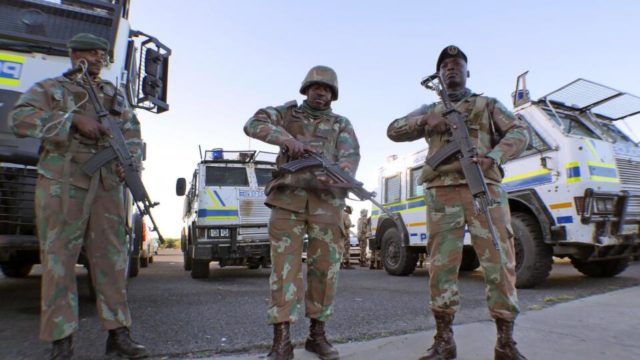SANDF soldiers deployed to enforce lockdown regulations to control the spread of the coronavirus have returned to barracks
CAPE TOWN – SANDF soldiers deployed to enforce lockdown regulations to control the spread of the coronavirus have returned to barracks as new infections slowed.
The Department of Defence said the presidential authority for the SANDF deployment during the national state of disaster expired last Wednesday and the forces would be confined to operational bases until further notice, with contingencies to render assistance in the event of a second wave.
The SANDF has since March contributed together with other government departments and role-players as part of the national effort to mitigate the spread of Covid-19.
SANDF chief general Solly Shoke and the military command expressed their gratitude and thanked all members who responded to the call to deploy in the fight against Covid-19.
“This call was heeded by the regular force, reserve force and Public Service Act personnel in the department of defence who worked tirelessly in the midst of the pandemic to safeguard the people and our nation,” Shoke said.
However, Nyanga Community Policing Forum chairperson Martin Makasi said the soldiers had a very minimal impact in their areas just like when they were deployed to assist with crime prevention operations.
Good Party secretary-general Brett Herron welcomed the military’s return to operational bases, saying they made progress in the fight to contain the spread of the virus. He said with the return to greater personal and economic activity there was reduced need for military patrols.
Stellenbosch University sociology professor Lindy Heinecken said the military deployment in the coercive, repressive role did more harm than good to its legitimacy and public good.








